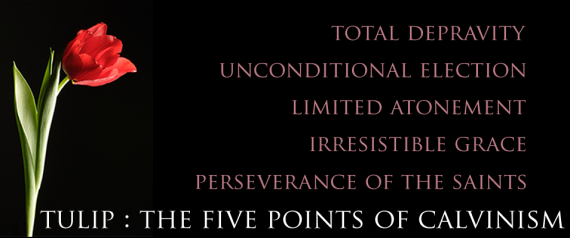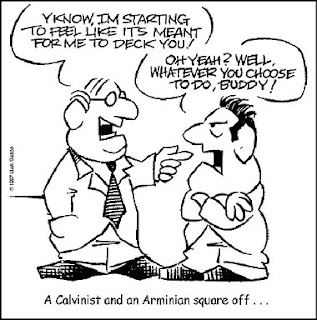
The Calvinistic doctrine of Unconditional Election is sometimes said to be the heart of Reformed theology (Boettner, Predestination, 96). It follows logically from the doctrine of Total Depravity (Seaton, Calvinism, 11).
Lorraine Boettner links the two doctrines with this explanation:
If the doctrine of Total Inability or Original Sin be admitted, the doctrine of Unconditional Election follows by the most inescapable logic. If, as the Scriptures and experience tell us, all men are by nature in a state of guilt and depravity from which they are wholly unable to deliver themselves and have no claim whatever on God for deliverance, it follows that if any are saved God must choose out those who shall be the objects of His grace (Boettner, Predestination, 95).
Edwin Palmer concurs:
If men are totally depraved and if some are still saved, then it is obvious that the reason some are saved and some are lost rests entirely with God. All of mankind would remain lost if left to itself and not chosen by God to be saved. … Therefore, if total depravity is Biblically true, then faith and consequent salvation come only when the Holy Spirit goes to work through regeneration. And the decision as to which persons He will work in must rest entirely, one hundred percent, with God, since man, being spiritually dead, cannot ask for help (Palmer, Five Points of Calvinism, 27).
 So if people are totally depraved (see the link list below) so that they cannot even believe in Jesus for eternal life or respond positively to God in any way, then God must unilaterally give eternal life to certain people.
So if people are totally depraved (see the link list below) so that they cannot even believe in Jesus for eternal life or respond positively to God in any way, then God must unilaterally give eternal life to certain people.
Who receives such a blessing?
According to Calvinism, God gives eternal life to those whom He chooses to give it. This is the doctrine of election, which we will consider over the next several blog posts.
Tomorrow’s post will provide numerous quotes from Calvinists on how they understand and explain Unconditional Election.
After this, we will look carefully at numerous texts from Scripture which are often used by Calvinists to defend the doctrine of Unconditional Election, and will suggest alternative explanations for these texts which fit better with their grammatical, cultural, theological, and historical contexts.
Finally, this series of posts on election will close with an explanation of what I believe the Bible teaches about election and predestination.
Until then, what questions and issues do you have about the biblical doctrines of election and predestination? Let me know below!
If you want to read more about Calvinism, check out other posts in this blog series: Words of Calvinism and the Word of God.




 I once preached a sermon on predestination and election, and there was a Calvinistic man in the church who, right in the middle of my sermon, stood up, and loudly said to his family, “Come on. We’re leaving!” He and his family filed out of their row, out the back of the church, and never returned. I later called him to find out why he left, and he accused me of being a heretic.
I once preached a sermon on predestination and election, and there was a Calvinistic man in the church who, right in the middle of my sermon, stood up, and loudly said to his family, “Come on. We’re leaving!” He and his family filed out of their row, out the back of the church, and never returned. I later called him to find out why he left, and he accused me of being a heretic. I believe that predestination does not refer to God’s choice of which people get to go to heaven, but refers instead to God’s determination to bring into glory all those who receive eternal life by faith in Jesus. In other words, predestination teaches us about who gets glorified, not who gets justified.
I believe that predestination does not refer to God’s choice of which people get to go to heaven, but refers instead to God’s determination to bring into glory all those who receive eternal life by faith in Jesus. In other words, predestination teaches us about who gets glorified, not who gets justified. 